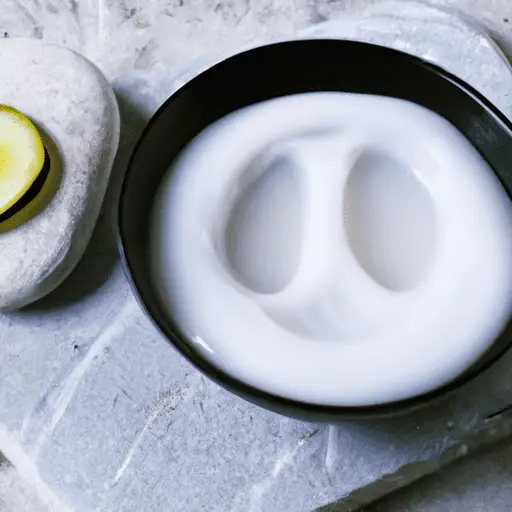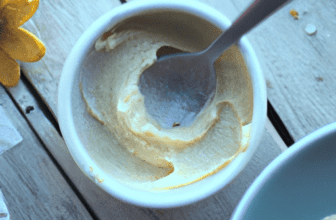Homemade Face Masks: Natural Recipes for Glowing Skin
-
Table of Contents
- Homemade Face Masks: Natural Recipes for Glowing Skin
- Key Takeaways
- Unmasking the Power of Natural Ingredients
- The Science Behind the Glow
- Recipes for Radiance
- FAQ Section
- 1. How often should I use homemade face masks?
- 2. Can I use any type of honey for my face mask?
- 3. Can I store leftover face mask mixture?
- 4. Can I use homemade face masks if I have sensitive skin?
- 5. Can homemade face masks replace my regular skincare products?
- Conclusion: The Natural Path to Glowing Skin
- Further Analysis
- Key Takeaways Revisited
Homemade Face Masks: Natural Recipes for Glowing Skin

[youtubomatic_search]
Key Takeaways
- Homemade face masks can provide a natural and cost-effective way to achieve glowing skin.
- Ingredients like honey, avocado, and oatmeal have scientifically proven benefits for skin health.
- DIY skincare allows for customization to suit individual skin types and concerns.
- Consistent use of natural face masks can result in noticeable improvements in skin texture and tone.
- While homemade face masks can be beneficial, it’s important to patch test ingredients to avoid potential allergic reactions.
Unmasking the Power of Natural Ingredients
With the rise of the DIY skincare trend, more and more people are turning to their kitchen pantries for ingredients to create homemade face masks. These natural recipes not only offer a cost-effective alternative to store-bought products but also allow for customization to suit individual skin types and concerns. This article explores the science behind the benefits of homemade face masks and provides recipes for achieving glowing skin.
The Science Behind the Glow
Several studies have highlighted the skin benefits of common kitchen ingredients. For instance, honey is known for its antimicrobial and anti-inflammatory properties, making it ideal for acne-prone skin (Al-Waili et al., 2013). Avocado, rich in healthy fats and vitamins, can help moisturize and soothe dry skin (Rosenblat et al., 2019). Oatmeal, on the other hand, has been recognized for its antioxidant and anti-inflammatory properties, which can help soothe sensitive skin (Kurtz and Wallo, 2007).
Recipes for Radiance
Here are a few simple recipes for homemade face masks that can help you achieve glowing skin:
- Honey and Lemon Mask: Mix one tablespoon of raw honey with the juice of half a lemon. Apply to the face and leave on for 15-20 minutes before rinsing off. This mask can help brighten the skin and reduce acne.
- Avocado and Yogurt Mask: Mash half an avocado and mix with a tablespoon of yogurt. Apply to the face and leave on for 15-20 minutes before rinsing off. This mask can help moisturize and soothe dry skin.
- Oatmeal and Banana Mask: Blend half a banana with a tablespoon of oatmeal and a teaspoon of honey. Apply to the face and leave on for 10-15 minutes before rinsing off. This mask can help soothe sensitive skin and exfoliate dead skin cells.
FAQ Section
1. How often should I use homemade face masks?
Most experts recommend using a face mask 1-2 times per week. However, this can vary depending on your skin type and the ingredients used.
2. Can I use any type of honey for my face mask?
Raw, unprocessed honey is the best choice for skincare as it retains more of its beneficial properties.
3. Can I store leftover face mask mixture?
It’s best to use fresh ingredients for each application. However, if you have leftovers, you can store them in the fridge for up to a week.
4. Can I use homemade face masks if I have sensitive skin?
Yes, but it’s important to patch test each ingredient to avoid potential allergic reactions.
5. Can homemade face masks replace my regular skincare products?
While homemade face masks can complement your skincare routine, they should not replace a regular regimen of cleansing, toning, and moisturizing.
Conclusion: The Natural Path to Glowing Skin
Homemade face masks offer a natural, customizable, and cost-effective way to achieve glowing skin. Ingredients like honey, avocado, and oatmeal have scientifically proven benefits for skin health. However, it’s important to patch test these ingredients to avoid potential allergic reactions. With consistent use, these natural recipes can help improve skin texture and tone, complementing your regular skincare routine.
[youtubomatic_search]
Further Analysis
While the DIY skincare trend continues to grow, it’s important to remember that not all natural ingredients are suitable for all skin types. It’s always best to consult with a dermatologist or skincare professional before introducing new products or ingredients into your skincare routine. Additionally, while homemade face masks can provide numerous benefits, they should not replace a regular skincare regimen of cleansing, toning, and moisturizing.
Key Takeaways Revisited
- Homemade face masks can provide a natural and cost-effective way to achieve glowing skin.
- Ingredients like honey, avocado, and oatmeal have scientifically proven benefits for skin health.
- DIY skincare allows for customization to suit individual skin types and concerns.
- Consistent use of natural face masks can result in noticeable improvements in skin texture and tone.
- While homemade face masks can be beneficial, it’s important to patch test ingredients to avoid potential allergic reactions.





